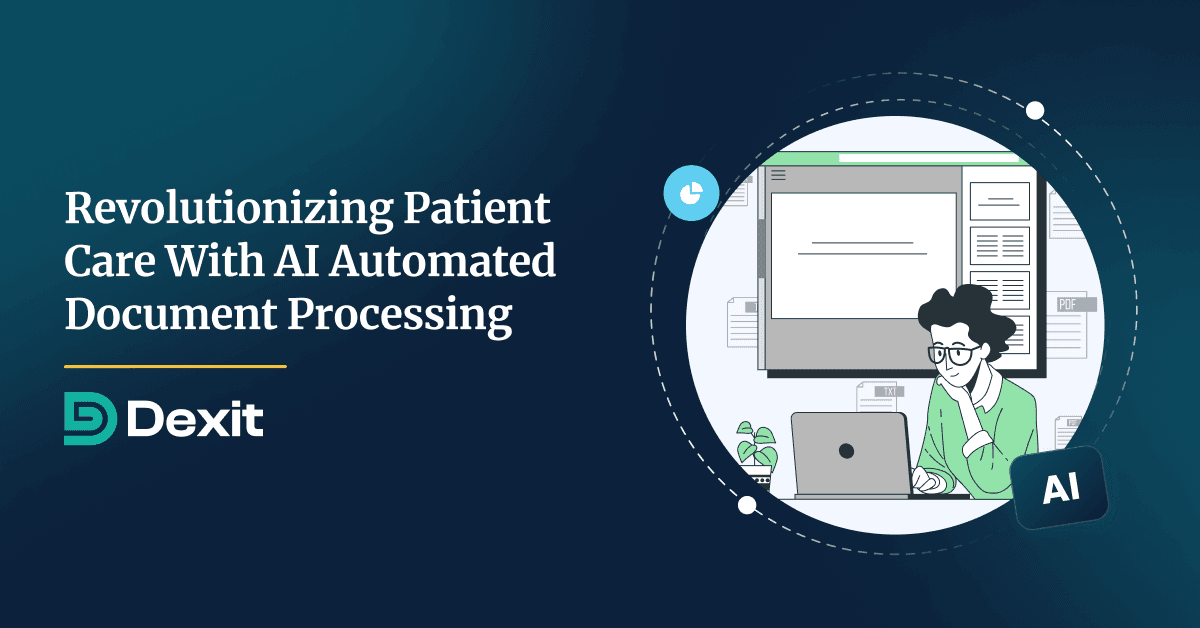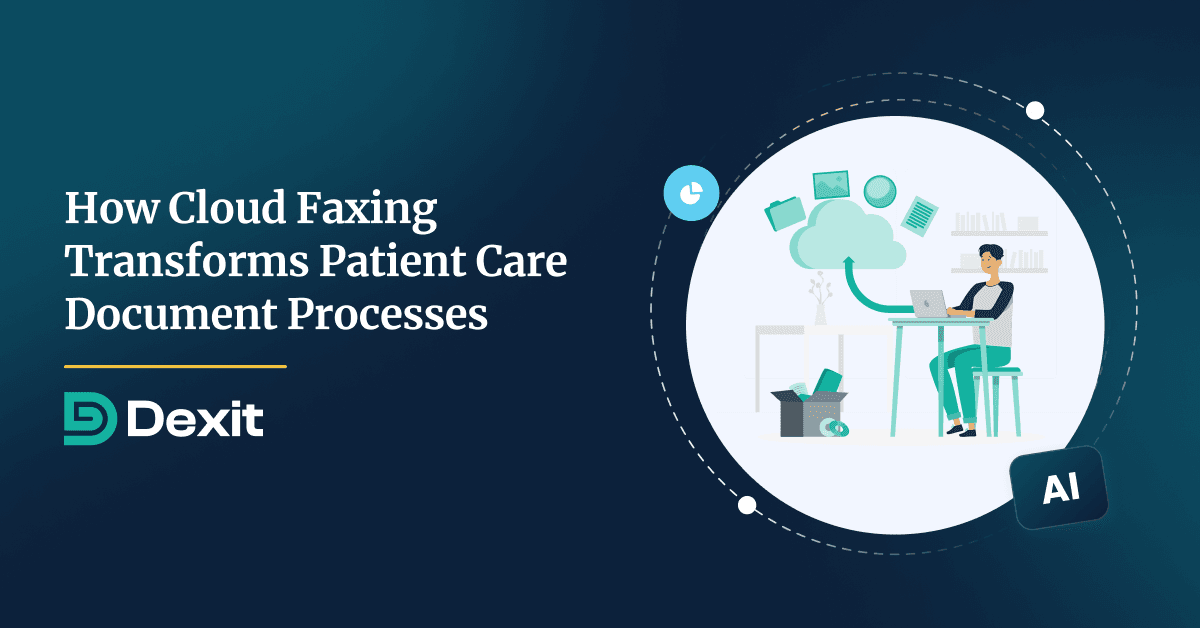
6 Reasons Why Dexit Stands Out as a Leading Healthcare Document Processing Tool
Managing healthcare documentation is one of the most time-consuming and error-prone tasks in the industry. …

In the rapidly evolving healthcare landscape, transforming traditional paper-based workflows into digital is no longer an option—it's a necessity. The shift toward digital transformation in healthcare promises to streamline operations, enhance patient care, and secure sensitive information. At the heart of this transformation lies the critical role of Document Management Systems (DMS), a key player in bridging the gap between legacy processes and the future of efficient healthcare management.
This blog dives deep into the importance of adopting digital document management procedures in healthcare and explores the significant benefits a robust DMS can bring. From reducing clerical errors and improving accessibility to ensuring compliance with stringent healthcare regulations, the advantages are substantial and far-reaching.
Explore:
Digital transformation in healthcare is not just a trend but a pivotal shift towards enhancing patient care and operational efficiency. According to research, the market value for digital transformation in healthcare is expected to reach $253.6 billion by 2033, making it clear that the sector is already embracing new digital technologies.
Traditionally, healthcare professionals have depended heavily on paper-based processes for consent forms, prescriptions, patient records, and clinical documents. However, the migration to digital Document Management Systems promises to transform patient care delivery in unprecedented ways. Electronic signatures, for instance, simplify the paperwork process not just for medical professionals but for patients as well, embodying the shift towards more accessible and efficient healthcare services. This allows medical staff to devote more time to patient interaction than paperwork.
The fact that managing vast amounts of patient data poses a huge challenge to healthcare providers is undeniable. In January 2020, Matt Hancock highlighted the disorganized nature of patient data management, with two-thirds of data held by hospital trusts in an unstructured format. A comprehensive digital system addresses this by centralizing patient information in one accessible location, simplifying the search for specific documents, and improving data coherence.
Furthermore, the shift from paper to digital formats not only enhances efficiency and care quality but also presents an opportunity for healthcare facilities to reduce operational costs. Thus, adopting digital document management procedures is a fundamental step toward leveraging technology for superior healthcare delivery.
Adopting a robust Document Management System (DMS) for managing your hospital’s healthcare documents is paramount to delivering high-quality care while maintaining regulatory compliance. There are numerous benefits of making this digital shift. It not only streamlines administrative processes but also enhances accessibility, ensures data security, and fosters better decision-making.
Here are some of the top benefits of adopting a healthcare Document Management System:
Dexit is a HIPAA-compliant and cloud-native Document Management System meticulously crafted to deal with the complexities of modern healthcare document management. Dexit not only simplifies the storage, retrieval, and management of documents but also integrates advanced features tailored specifically for the healthcare industry.
From intuitive document indexing for easy navigation to the modernization of faxing through cloud-based solutions, Dexit spearheads the digital transformation of healthcare documentation processes. Leveraging AI, its patient identification capabilities ensure precise matching of documents to patient charts while also easily identifying specific document types, elevating workflow efficiency. The system seamlessly integrates with contemporary scanners, facilitating swift digitization and categorization of documents.
Dexit also offers customized workflow options, allowing healthcare providers to tailor the DMS to their unique processes. Additionally, its intelligent document routing and advanced search capabilities ensure that accessing and managing documents is as efficient as possible. With an integrated DICOM viewer, Dexit emerges as a holistic solution for managing healthcare documents.
Check out Dexit’s unique list of features here.
The transition to digital document management in healthcare is not just about keeping up with technology—it’s about leading the change toward more efficient, secure, and patient-focused care.
The adage "time is of the essence" rings especially true in healthcare, where the efficiency gains and error reductions afforded by systems like Dexit can save lives. By adopting such technologies, healthcare providers are not just upgrading their systems; they're upholding a commitment to providing the highest standard of care. Security, efficiency, compliance, and patient satisfaction are not goals that can be achieved through half-measures.
To experience Dexit firsthand and witness how it can revolutionize healthcare document management, book your demo today by clicking on this link.
Join over 3,200 subscribers and keep up-to-date with the latest innovations & best practices in Healthcare IT.

Managing healthcare documentation is one of the most time-consuming and error-prone tasks in the industry. …

Let’s face it—paperwork isn’t why anyone got into healthcare. Yet, for many, processing patient documents, …

In the ever-evolving healthcare landscape, the efficient management and secure exchange of patient information …